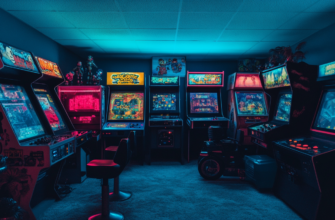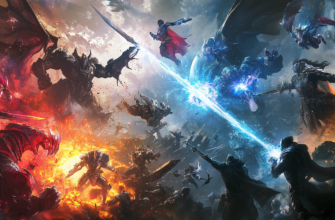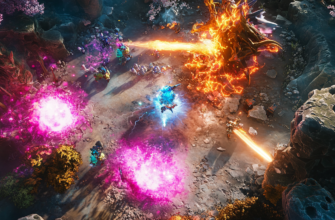## How video games can sharpen your analytical thinking skills
As gamers, we’ve all been there—staring at a screen for hours, trying to conquer a particularly tricky level or unravel a convoluted puzzle. But in the world of gaming, something way more awesome is happening beneath the surface: your brain is being trained in ways you might not even realize. Believe it or not, playing video games is a powerhouse when it comes to improving **analytical thinking**.
So, what exactly is analytical thinking? In a nutshell, it’s your ability to break down complex problems, observe and analyze them logically, and then develop strategies to solve them effectively. If you’ve ever navigated through a maze of enemies or pieced together a world-saving strategy, you’ve been flexing those brain muscles! Let’s dive into how gaming can positively impact this intellectual skill.
## What is analytical thinking, and why is it a big deal?
**Analytical thinking** is all about observing situations, understanding them, and then breaking them down to find solutions. It’s super useful not just in gaming but in everyday life. Whether you’re solving puzzles at work, making decisions in your personal life, or facing challenges in a video game, this kind of thinking equips you to tackle complex problems step by step.
Now, video games aren’t just about flashy graphics and cool shootouts. A lot of games nowadays demand we think critically, adapt on the fly, and use strategy and patience. These demands are what help us develop and refine our analytical mindset.
## How games stimulate analytical thinking
While you might think only puzzle games build your thinking skills, many genres boost analytical abilities. Some examples include:
- Strategy Games: Games like *Civilization*, *StarCraft*, and *Total War* force you to manage resources, direct entire armies, and make decisions that echo a few steps ahead. If you mess up one part of your strategy, you could experience the fallout several turns later! Success in these games relies on deep analysis and future planning.
- Puzzle-Solvers: Classics like *Portal*, *The Witness*, and *Braid* challenge you to analyze situations, experiment, and try inventive solutions. You’re required to approach things slowly, taking into account every element on your screen.
- Role-Playing Games (RPGs): Think *The Witcher 3*, *Skyrim* or *Dark Souls*. In RPGs, analytical thinking comes into play when deciding how to build your character, solve quests by considering various dialogue choices, or defeat stronger enemies by utilizing smart combat strategies.
- Simulation Games: *SimCity*, *Cities: Skylines*, and *Football Manager*. These games put you in control of complex systems. You analyze, implement, and fix issues on a wide range. Whether you’re building a city or managing a football team, these games demand you think methodically.
### Key elements of analytical thinking in video games
Here are some of the key gameplay elements that help sharpen your critical and analytical thinking skills:
1. Pattern recognition
Video games challenge you to recognize patterns in everything from enemy movements to puzzle designs. For example, if you’ve played *Dark Souls*, you know how important it is to understand enemy attack patterns. Recognizing these patterns allows you to strategically time your own moves and counterattacks.
2. Strategic planning
Most successful games don’t just let you rush in guns blazing (even if that style is fun). You need to plan several steps ahead. In games like *StarCraft*, you’re constantly strategizing resource allocation, troop movement, and even anticipating enemy moves. This type of goal-oriented strategy builds your ability to break down tasks and plan efficiently.
3. Problem-solving
From solving puzzles in *The Legend of Zelda* to working out tricky platforming sections in *Celeste*, video games make you face problems head-on. You’ll need to experiment, fail, adapt to setbacks, and try again — all essential traits for an analytical mind.
4. Adaptation and flexibility
Not everything goes according to plan. In games, as in life, learning to adapt is crucial. Whether you’re facing sudden changes in a *Fortnite* battle or adjusting to randomized elements in *Rogue-like* titles, learning to adapt trains your brain to quickly analyze new data and think on its feet.
## Steps to improve your analytical thinking through gaming
Want to supercharge your playing and take your brainpower to the next level? Follow these steps:
Step 1: Play games with meaningful challenge
While every game has its appeal, focus on games that offer both solid entertainment and a stimulating challenge. Strategy games (*XCOM* or *Age of Empires*) and puzzle games are excellent choices. These require constant problem-solving and initiative, forcing you to be analytical with every move.
Step 2: Reflect on your decisions
After a gaming session, take a breather and think back. What strategies did you use? What could you have done differently? Try breaking down what led to both your successes and failures. By reflecting, you’ll find patterns and improve on those troublesome areas for the next session.
Step 3: Up the difficulty
If a game’s too easy, you aren’t being mentally challenged. Crank up the difficulty settings! This forces you to dig deeper into your analytical toolkit to stay competitive. You’ll have to start analyzing threats faster and optimize your decision-making.
Step 4: Experiment and take risks
Don’t just stick to your go-to tactics or play style. Force yourself to try different approaches — things you wouldn’t normally do. For example, if you always play defensive in *StarCraft*, try going ultra-aggressive. Analyze how changing your tactics affects the outcome. This forces your brain to appreciate different approaches and possibilities.
Step 5: Play multiplayer games
Multiplayer games pit your brain against someone else’s. The unpredictability of human behavior means you need to constantly adapt and rethink your strategies. Whether you’re in a ranked *League of Legends* match or trying to outsmart opponents in *Among Us*, the social aspect pushes you to evaluate not just the game mechanics but the personalities and tendencies of your collaborators or opponents.
## Practical tips for boosting your analytical thinking

















